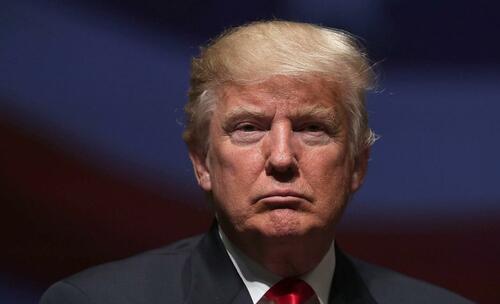
Former President Trump filed a lawsuit against the Justice Department on Monday in which he asked a federal judge to appoint a 'special master' watchdog to review documents seized from his Florida home as part of an investigation into the removal of records from the White House.
"To date,the government has failed to legitimize its historic decision to raid the home of a President who had been fully cooperative," reads the civil complaint, titled Trump v. United States Government.
The legal filing, which suggests that the Aug. 8 raid was politically motivated, asks the judge to block the DOJ from "further review of seized materials" until the special master can review them first.
Special masters, usually a retired judge, are typically appointed in a criminal case where there are concerns over materials that are protected by attorney-client privilege, or due to other concerns - such as the fact (in this case) that the same agency involved in the Russiagate hoax raided Trump's residence to recover documents Trump felt were exonerating.
Earlier in the day, a federal judge in Florida reiterated that he is inclined to make part of an affidavit underlying the search warrant public, saying it would "promote public understanding of historically significant events."
"Particularly given the intense public and historical interest in an unprecedented search of a former President’s residence, the Government has not yet shown that these administrative concerns are sufficient to justify sealing," wrote Judge Bruce Reinhart, giving the DOJ until Noon on Thursday to explain why portions of the document should remain hidden from public view.
More than two-dozen boxes were removed during the search of Mar-a-Lago, including 11 sets of classified documents - some marked top secret.
Trump, meanwhile, claims he declassified all materials which left the White House - while his supporters have reacted with outrage over what they say is a clear case of government overreach.
As the Wall Street Journal notes, it could be a while before the public sees any of the document, as Judge Reinhart said he would assess the proposed redactions before unsealing it.
Former President Trump filed a lawsuit against the Justice Department on Monday in which he asked a federal judge to appoint a ‘special master’ watchdog to review documents seized from his Florida home as part of an investigation into the removal of records from the White House.
“To date,the government has failed to legitimize its historic decision to raid the home of a President who had been fully cooperative,” reads the civil complaint, titled Trump v. United States Government.
The legal filing, which suggests that the Aug. 8 raid was politically motivated, asks the judge to block the DOJ from “further review of seized materials” until the special master can review them first.
Special masters, usually a retired judge, are typically appointed in a criminal case where there are concerns over materials that are protected by attorney-client privilege, or due to other concerns – such as the fact (in this case) that the same agency involved in the Russiagate hoax raided Trump’s residence to recover documents Trump felt were exonerating.
Earlier in the day, a federal judge in Florida reiterated that he is inclined to make part of an affidavit underlying the search warrant public, saying it would “promote public understanding of historically significant events.”
“Particularly given the intense public and historical interest in an unprecedented search of a former President’s residence, the Government has not yet shown that these administrative concerns are sufficient to justify sealing,” wrote Judge Bruce Reinhart, giving the DOJ until Noon on Thursday to explain why portions of the document should remain hidden from public view.
More than two-dozen boxes were removed during the search of Mar-a-Lago, including 11 sets of classified documents – some marked top secret.
Trump, meanwhile, claims he declassified all materials which left the White House – while his supporters have reacted with outrage over what they say is a clear case of government overreach.
As the Wall Street Journal notes, it could be a while before the public sees any of the document, as Judge Reinhart said he would assess the proposed redactions before unsealing it.







